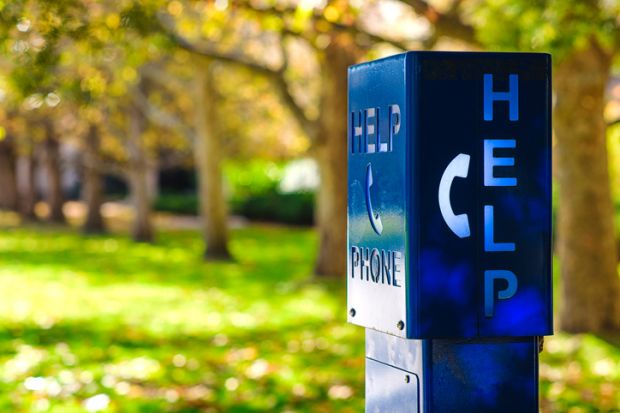The Biden administration has made clear its intention to revoke a Trump-era policy weakening protections for victims of sexual assault on college campuses, though with little clarity on where it will draw the line.
The Trump regulation implemented last year requires colleges handling sexual assault to permit the live questioning of accusers and sets more explicit standards for deciding guilt and punishment.
During the three years of the rule’s development, higher education leaders criticised the approach as creating an overly confrontational process that may discourage victims from pursuing complaints.
In a move marking International Women’s Day, Joe Biden signed an executive order instructing his newly confirmed secretary of education, Miguel Cardona, to recommend changes to that regulation and any others that fail to protect against sexual harassment or violence.
Both administration officials and higher education leaders, however, said they had no clear plans yet on how to define a fair process for the complex problem of adjudicating sexual assault complaints among college students.
At a White House press briefing, Jennifer Klein, the executive director of the administration’s new Gender Policy Council, declined to offer her assessment of what the replacement rules should look like.
“The president has asked the secretary of education to look at each piece of the regulations of all policies and make that decision,” Ms Klein said.
The end result, she said, should be that “everybody involved – accused or accuser – should have a fair and full process”.
The main umbrella group for US higher education, the American Council on Education, also acknowledged it wanted the Trump policy gone without yet having a firm idea of what should take its place.
The council’s senior vice-president for government and public affairs, Terry Hartle, said the Trump administration was right to seek formal regulatory language to replace the system of advisory guidance under the Obama administration.
But its end product was too legalistic, Dr Hartle said. “What we’re fundamentally looking for is a regulation that does not turn colleges into courts, that allows us to treat both sides fairly and compassionately,” he said. “We are not courts – we lack the expertise and legitimacy to pursue judicial functions.”
One major problem now, however, is that the Trump rules have taken effect and rewriting them could take years, just as colleges are adapting to them, Dr Hartle said. That, he said, argues for a relatively precise set of targeted changes rather than a major overhaul.
The Biden administration also could just repeal the Trump rules altogether in a short time frame, he acknowledged. But that’s not a good idea, he said, because of dramatic changes in court cases and state laws that need to be incorporated since the Obama guidance was issued in 2011.
The administration also faces political hurdles, not just from Republicans determined to defend Trump achievements and from universities craving stability but from some Democrats and legal scholars who have agreed that some rebalancing of rights in the Obama rules was justified.
Gender-related rights also represented the only consistent area of complaint that Dr Cardona faced in the otherwise smooth US Senate hearing for his confirmation as education secretary. In that case, several Republican senators condemned the Biden administration’s support for transgender students potentially competing in school sports intended for those born female.
Register to continue
Why register?
- Registration is free and only takes a moment
- Once registered, you can read 3 articles a month
- Sign up for our newsletter
Subscribe
Or subscribe for unlimited access to:
- Unlimited access to news, views, insights & reviews
- Digital editions
- Digital access to THE’s university and college rankings analysis
Already registered or a current subscriber? Login








